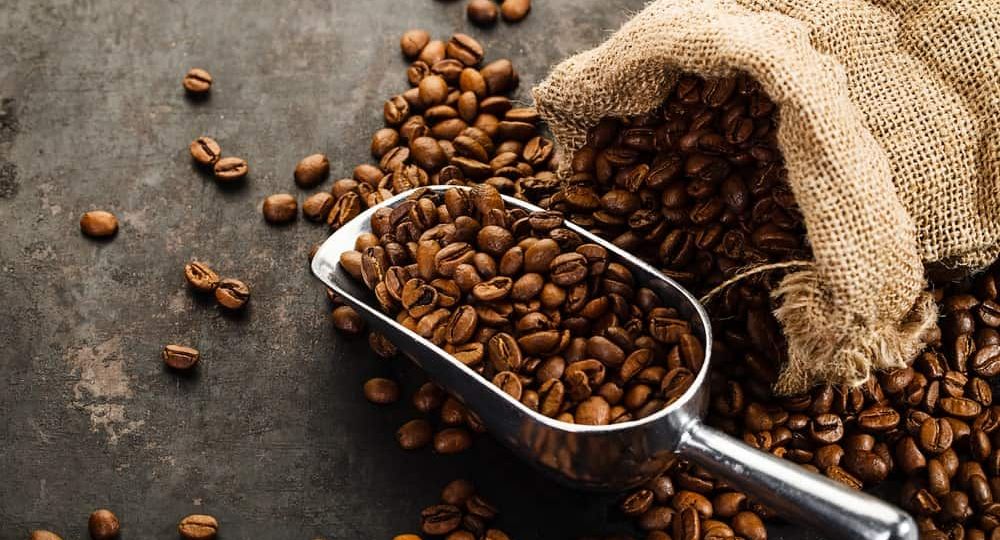
Indian coffee beans are renowned for their distinct flavors and quality, making them a favorite among coffee enthusiasts worldwide. The beans are grown in the shaded regions of the Western Ghats, among the biodiverse hotspots of India, which contributes to their unique taste profiles.
Indian coffee, particularly known for its mild flavor and aromatic qualities, has garnered a significant following, contributing to the country’s reputation as a notable coffee producer on the global stage.
History of Coffee in India
Coffee cultivation in India traces back to the 17th century, believed to be introduced by a Sufi saint named Baba Budan. He smuggled seven coffee beans from Yemen to India, planting them in the Chandragiri hills of Karnataka.
This modest beginning marked the start of coffee cultivation in India. The British colonization in the 19th century significantly expanded coffee plantations, establishing India as a major coffee producer. The British introduced systematic cultivation methods and expanded the cultivation areas, laying the groundwork for today’s Indian coffee industry.
Arabica
Arabica beans, known for their sweet, soft taste and higher acidity compared to Robusta, are predominantly grown in the cooler, elevated regions of Karnataka, Kerala, and Tamil Nadu. These beans are favored for their smooth, refined flavor profiles, often featuring hints of fruit and sugar, with a higher acidity and less bitterness.
Robusta
Robusta beans, cultivated extensively in the lower elevations of Karnataka and Kerala, are characterized by their strong, robust flavor and a higher caffeine content. They offer a deeper, more pronounced taste and are commonly used in espresso blends for their rich crema and full-bodied texture.
Monsooned Malabar
A unique specialty of Indian coffee, Monsooned Malabar, undergoes a distinctive processing method that involves exposing the beans to the monsoon winds and moisture for several months. This process, originated on the Malabar Coast, significantly alters the beans’ characteristics, resulting in a flavor profile that is low in acidity, full-bodied, and with a mellow, earthy taste.
This coffee is highly prized for its unique taste, which includes notes of spice and chocolate, making it a favorite among coffee connoisseurs.
Major Coffee Growing Regions in India
India’s coffee production is largely concentrated in its southern states, where the climate and terrain offer ideal conditions for coffee cultivation.
Karnataka
Karnataka is the largest coffee-producing state in India, contributing about 70% of the country’s total coffee output. The region’s hilly terrain, particularly in areas like Coorg, Chikmagalur, and Hassan, provides the perfect environment for coffee cultivation. Arabica and Robusta beans from Karnataka are celebrated for their superior quality and distinctive flavors.
Kerala
Kerala, particularly its Wayanad region, is known for its robust Robusta production. The state’s unique geographical features, including its wet climate and rich, loamy soil, contribute to the strong, bold flavors characteristic of Kerala’s coffee beans.
Tamil Nadu
Tamil Nadu’s coffee plantations are primarily found in the Nilgiri, Anamalai, and Palani hills. The cool climate and high altitudes make it an excellent location for growing Arabica beans, which are known for their mild flavor and aromatic qualities.
Other Notable Regions
Other regions, such as Andhra Pradesh and the northeastern state of Assam, have also started to gain recognition for their coffee production. These areas contribute to the diversity of Indian coffee, offering unique flavors and qualities.
Processing Methods of Indian Coffee Beans
Wet (Washed) Process
In the wet process, the coffee cherries are pulped to remove the outer skin, and then the beans are fermented in water to remove the mucilage. This method enhances the beans’ inherent qualities, resulting in a cleaner, brighter flavor.
Dry (Natural) Process
The dry process involves sun-drying the coffee cherries with the beans inside, resulting in a sweeter, fruitier flavor profile. This traditional method is less labor-intensive but requires more space and time.
Monsooning Process
The monsooning process, unique to India, involves exposing the processed beans to the monsoon winds and moisture for several months. This method reduces the beans’ acidity and increases their body, imparting a distinct flavor profile characterized by a mellow taste and woody aroma.
Coffee Culture and Trends in India
The rise of specialty coffee in India has transformed the country’s coffee culture, with an increasing number of specialty coffee shops and cafes emerging across urban centers. These establishments emphasize the quality and sourcing of their beans, often highlighting Indian single-origin coffees. This trend has not only increased domestic consumption but also enhanced India’s profile on the global coffee stage.
Indian Coffee Beans in the Global Market
Indian coffee beans have carved a niche in the global market, with Indian Arabica and Robusta varieties being highly sought after for their unique flavors and quality. The export of specialty beans like Monsooned Malabar has further solidified India’s reputation as a producer of exotic and premium coffee.
Compared to other coffee-producing countries, Indian coffee is distinguished by its diverse flavor profiles, influenced by the varied climates and processing methods unique to each growing region.
Reviews of Popular Indian Coffee Bean Varieties
Indian coffee beans are celebrated for their diverse flavor profiles, which vary significantly across different regions and processing methods. Among the many varieties, two stand out for their unique characteristics and popularity.
Monsooned Malabar
The Monsooned Malabar variety is renowned for its distinctive taste profile, which includes notes of spice, chocolate, and a unique earthiness, with a markedly low acidity and full body. This flavor profile is the result of the monsooning process, where beans are exposed to moist, monsoon winds for several months, causing them to swell and lose their original acidity.
The best brewing methods for Monsooned Malabar include pour-over, French press, and espresso, which highlight its rich flavor and smooth finish.
Other Notable Varieties
- Arabica from the Nilgiris: Offers a mild, sweet cup with subtle floral notes, ideal for black coffee drinkers.
- Robusta from Coorg: Known for its strong, bold flavor, making it perfect for a robust espresso or as a base for milk-based coffee drinks.
FAQs
What makes Indian coffee beans unique?
Indian coffee beans are unique due to the diverse climatic conditions across coffee-growing regions, varied altitude, and rich soil, which contribute to the beans’ distinctive flavor profiles. The traditional and innovative processing methods, such as the monsooning of beans, further enhance their uniqueness.
How does the monsooning process affect the flavor of coffee beans?
The monsooning process significantly reduces the acidity of the beans, increases their body, and imparts a unique flavor profile characterized by notes of spice, woodiness, and chocolate. This process makes Monsooned Malabar beans a distinct variety in the global coffee market.
Which Indian coffee bean variety is best for espresso?
Robusta beans from regions like Coorg are considered best for espresso due to their strong flavor, high caffeine content, and ability to produce a rich crema. However, Arabica varieties with a bold profile can also be excellent for espresso, offering a more nuanced flavor.
Conclusion
Indian coffee beans, with their rich heritage and unique processing methods like monsooning, hold a significant place in the global coffee scene.
Each variety, from the aromatic Arabicas of the Nilgiris to the robust Robustas of Coorg, offers a distinct taste experience, encouraging coffee lovers to explore the diverse flavors of Indian coffee. Whether you prefer a smooth, mild cup or a strong, bold espresso, Indian coffee beans provide options to satisfy every palate.









